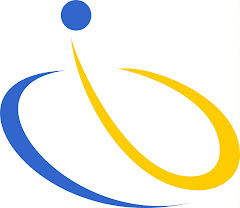Wednesday, March 23, 2011
Creating your event's core messaging
Tuesday, March 22, 2011
Seriously, the five most important things about marketing for your event
Monday, March 21, 2011
Ask lots and lots of questions.
“If you want to come up with lots of ideas, ask lots of questions.”
Someone a lot smarter than I am said that. I’ll extend it though, and say, “If you are writing a plan and want to make sure you don’t forget something, ask lots of questions.”
I could easily write 100 questions to give you examples, but here are 23 – if you ask these questions at the beginning of the planning process and revisit them from time to time, you’ll generally come out way ahead:
1. What are my key objectives?
2. In what ways does this event need to support my business objectives?
3. Which individuals, businesses and organizations should be involved with this event?
4. How do we use this event to create new relationships and strengthen existing ones?
5. What are the possible locations?
6. What qualities do we need the location to have?
7. How many attendees do we need to be successful?
8. What is our budget?
9. Who do we need to make happy?
10. What could we do that would be special?
11. What are the things that could go wrong?
12. What do we need to accomplish with the agenda?
13. Who/what should we consider to be part of the agenda?
14. What have others done at similar events that we might want to emulate?
15. What have others done at similar events that we want to learn from/avoid?
16. What kind of food/drinks do we need?
17. What could we do that would be unusual?
18. What will people expect?
19. Where can we cut costs?
20. In what areas should we be sure not to skimp on cost?
21. How can we use technology to further our goals for this event?
22. What can we do to green this event?
23. What are the accessibility issues?
Sunday, March 20, 2011
Know your key objectives and make them your guide.
For every event you ever do, there will be a handful of essential accomplishments that will determine its success (and fewer is always better). Take the time to think them through and write them down. It won’t always be possible to attach a numerical goal, but be as specific as possible; objectives with a numerical value feel more real to everyone involved.
· Get 250 people to attend.
· Attract three media outlets.
· Persuade 20 VIPs to attend (from a list of 50 that you have created).
· Provide a fun evening.
· Make 15 new contacts.
· Boost your reputation as a leader in the local auto industry.
· Obtain 10 sponsors who provide at least $1000/each.
· Recruit 100 healthcare-related booths.
· Attract 500 people.
· Sell $2000 worth of healthcare supplies.
· Gather 30 new qualified sales leads.
Saturday, March 19, 2011
Recruiting event staff
Wednesday, March 9, 2011
Reading the newspaper for fun and profit

Maybe you think of reading the newspaper as a nice, relaxing way to end or start the day. I'm here to tell you that it is an activity that should be an integral part of any good event planner's daily work day. But don't just read the newspaper, realize that it is a daily treasure chest and mine every gold nugget you can.
- ads for businesses of all kinds -- if a business is advertising in the newspaper, then they have a marketing budget; if they have a marketing budget, then they are a prospective event sponsor
- ads for events -- larger ads for events (and some news articles) will list corporate sponsors, which should be considered prospects; some ads might even list individual donors, which should be inventoried for inclusion in future invitation lists
- ads and stories about other events that might conflict with something you are doing
- obituaries -- to help you update invitation lists and to let you know when people you know lose someone important in their lives
- community calendars -- for ideas and to identify potential conflicts with your events
- everything -- to trigger ideas for every aspect of what you do
Sunday, March 6, 2011
Events are a powerful marketing tool
Wednesday, March 2, 2011
Choosing a speaker: don't pull a "James Franco"
There is pretty universal agreement that James Franco was a about as bad a co-host as you could expect to see -- completely lacking in energy; bereft of wit; just all around bad. Even the phenomenal Anne Hathaway -- who was obviously doing everything she could to compensate for his inadequacies -- was dragged down by his poor performance.
For those of us who plan events, is there a lesson to be learned from this?
Yes. This problem almost certainly have been avoided and the fact that it was not was almost certainly the fault of the event organizers.
RULE -- Do not choose speakers you have not seen or for whom you do not have strong, public speaking-oriented references. James Franco is a remarkable actor, but this is radically different from being a fast-on-your-feet host of a live event. My guess is that he was chosen based on an assumption that his acting ability would translate into public speaking/hosting ability.
Bad idea.
Event organizers do this kind of thing ALL THE TIME. They see someone who is articulate and well spoken and assume she will be a great addition to the program. Sometimes this works. Often, it does not.
Choose your speakers carefully. Make sure that their experience and references are appropriate to your need. Base you decisions on assumptions at your own risk.
Sean Spence
Community Events
www.commevents.
seanspence@earthlink.net
573-823-1308



